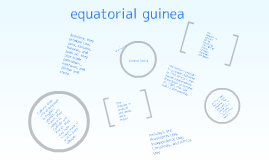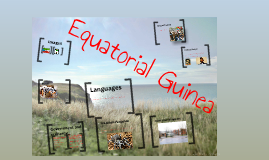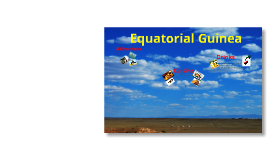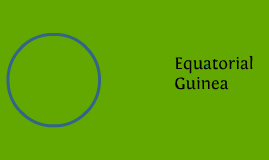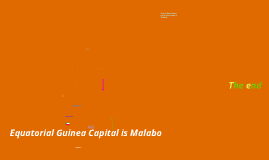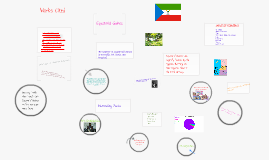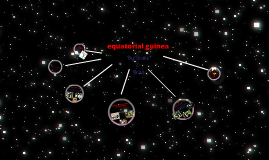Equatorial Guinea
Transcript: Equatorial Guinea Politics Equatorial Guinea is a Republic, meaning, the people are in charge. Equatorial Guinea's presidential election is widely seen as flawed. The acting president has power over everything, so the other candidates have almost no chance of winning. Because of this flawed system, the current president has been in office since 1972. That was before either of my parents were even born! History Equatorial Guinea gained its independence in 1968, after 150 years of Spanish rule, in a coup. (A coup, is an aggressive overthrow of the government.) Every time a new president has come into office, it's been because of coups. Recently there were a handful of people involved in an attempted coup. People tried to overthrow the current president in reports of police brutality, and of oppressive rule. People Most people in Equatorial Guinea are "Fang". Fang is the largest race in Africa. Recreational Activities A favorite sport in Equatorial Guinea is soccer. Another thing that people in Equatorial Guinea like to do is visit restaurants. One of the best fishing grounds in the world is the ocean around Equatorial Guinea! Economy Equatorial Guinea's economy SKYROCKETED since the discovery of offshore oil reserves. Culture and Religion About 97% of Equatorial Guinea's people are Christian. Catholicism was brought to the nation by the Spaniards around 200 years ago. Before the introduction of Christianity, most Equatorial Guineans were pagan. The average female gets 1/5 less schooling than the average male. Equatorial Guinea has not always had this name. Prior to their independence, the nation was known as "Spanish Guinea." Now their name is derived from the nation's geographical location. Sitting on the Equator, next to the Gulf of Guinea, it only is logical that the nation would call itself "Equatorial Guinea." Bata is the largest city in the nation, while Malabo is the capitol. Languages and Population The predominate language in Equatorial Guinea is Spanish, with 67% of the population speaking it. The rest of the people speak either French, Fang, or Bubi. As of the census taken in July of 2012, the population in Equatorial Guinea is 686,000 people. There aren't too many elderly folks, though. Forty-one percent of citizens are children under the age of 14; 55% are adults between the ages of 15 and 64; but, sadly, only 4% of the population is 65 or older. Conclusion. In conclusion, Equatorial Guinea is a fantastic place to visit, and I encourage everyone to do more research and find out more about this great country.






